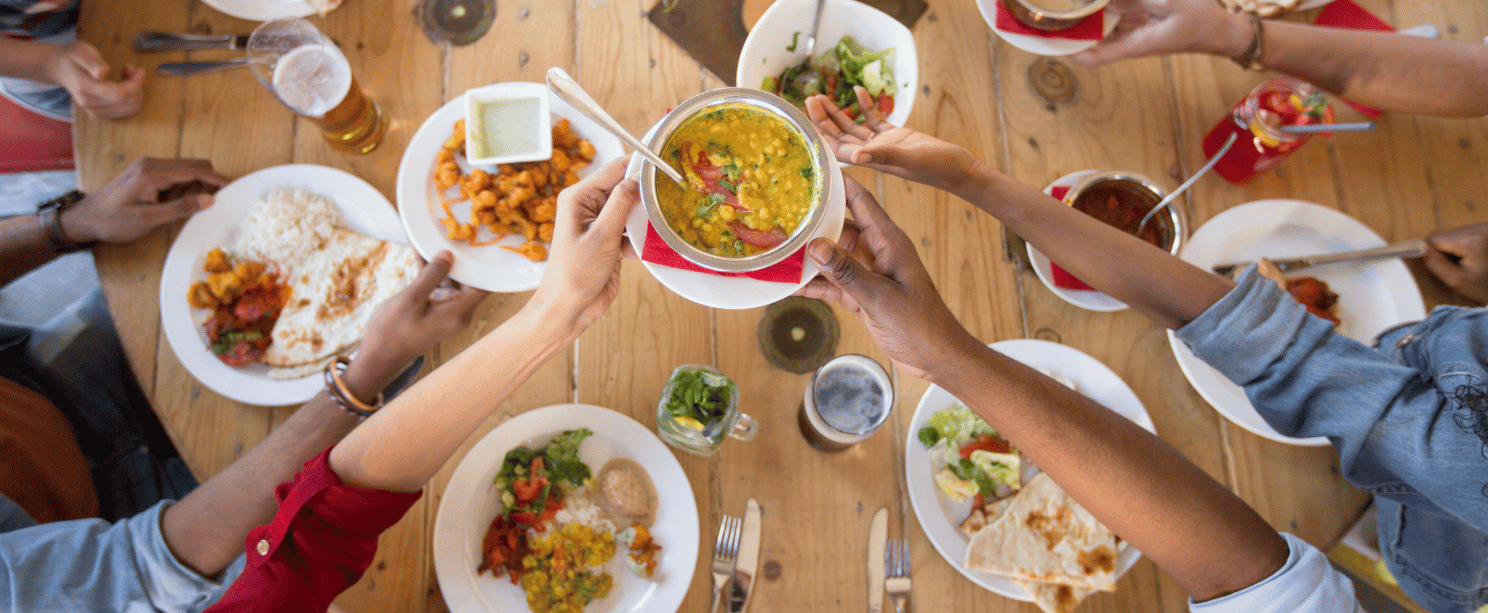
Living with diabetes is a daily balancing act, but when illness strikes, that balance can feel even more precarious. Being sick can wreak havoc on your blood sugar levels, making an already challenging condition even more difficult to control, whether it's a common cold or something more serious. Here, we’ll explore some essential strategies to help you manage diabetes during sick days to recover smoothly and reduce the risk of hospitalizations or severe illness.
How Does Illness Affect Diabetes?
When you're sick, your body treats the illness as a stressor. This triggers a release of hormones that increase the amount of glucose in the blood, which can help fuel your body for the fight against harmful pathogens. In people without diabetes, this is a positive response that can give your body the energy it needs to maximize the power of the white blood cells. However, when living with diabetes, these changes in blood sugar can be a bit unpredictable and harder to control. Some illnesses may lead to spikes in blood sugar, while others can result in low blood sugar, especially if you're unable to eat or are vomiting. Therefore, it's important to understand how to care for yourself if you get sick and what to do in an emergency.
Preparing for Sick Days in Advance When Living with Diabetes
Often, illness is paired with fatigue and brain fog, which can make managing underlying conditions like diabetes even more difficult. Some strategic planning can help ensure that you're prepared to handle sick days.
Create a Sick Day Kit
One of the best ways to manage your diabetes when feeling sick is to have a sick day kit ready. This should include everything you need to stabilize your blood sugar levels and reduce the risk of experiencing diabetic ketoacidosis (DKA) or hyperglycemia. Some things to have on hand include:
- Thermometer
- Medicine to control vomiting or diarrhea
- Antacids
- Pain relievers
- Crackers
- Fruit juice
- Soda
- Sports drinks
- Canned soup or broth
- Unsweetened applesauce
- Cold or flu medications that won't affect your blood sugar
- Ketone test strips
- A glucagon kit for hypoglycemia
- Anti-nausea medication
- Glucose tabs or gels
- Glucose-lowering medications
- Glucose meter
- Continuous glucose monitor
- Insulin pump
Make a Plan with Your Doctor
It's also important to check with your doctor regarding what to do if you get sick. Making a sick day plan can help you manage your diabetes without putting yourself at risk. For example, some over-the-counter medications might do more harm than good when living with diabetes, so make sure you know which options will be okay for you to take. You should also talk about how often to check blood glucose levels, when to test for ketones, and what to do if you can't eat. If you begin feeling ill, continue with your diabetes management plan and call your doctor or diabetes specialist for more detailed instructions.
Preventing Illnesses
Although it's impossible to prevent every illness, there are some things you can do to decrease your chances of catching a bug. First and foremost, talk to your doctor about getting the flu vaccine. This should be done yearly before cold and flu season to help reduce your risk. Your doctor may also recommend updating your coronavirus vaccine. Always practice good hand hygiene and avoid people you know are sick. Eating a nutritious diet, exercising, and prioritizing a good sleep schedule will also help your body fight germs more effectively.
How to Manage Diabetes When You're Sick
Consider the following tips to help you avoid excessive blood sugar fluctuations while your body works hard to fight off pathogens.
Check Your Blood Sugar Levels More Often
Although it might be difficult if you're feeling fatigued or are sleeping a lot, you need to check your blood glucose levels more often when you're sick. Your doctor will give you a better idea of the best intervals based on your illness or how you're feeling, but you may need to test every few hours, even throughout the night.
Stay Hydrated
Dehydration when you're sick can worsen symptoms and affect your blood sugar, so it's important to try and drink plenty of water. If your blood sugar is below 180 mg/dl, you may also need to drink sugary drinks to help boost glucose levels. These can include things like Pedialyte, drinks with sugar (i.e., cola or ginger ale), lemonade or Kool-Aid, sports drinks, and more.
Manage Your Electrolytes
Getting sick can disrupt the balance of fluids and electrolytes in the body, which can increase your risk of complications, especially in people with diabetes. So, in addition to staying hydrated, take extra precautions to help address any electrolyte imbalances. These are typically drinks with things like sodium, potassium, and chloride. Sports drinks, oral rehydration solutions, and broths all have good levels of electrolytes.
Keep Your Blood Glucose Levels Stable
Some illnesses can make you feel sick to your stomach, making it hard to eat. However, not eating can affect blood sugar levels even more and make it challenging to manage diabetes. Ideally, eat or drink about 50 grams of carbohydrates every three to four hours. You can also use the 15-15 rule to raise your blood glucose levels if you experience hypoglycemia. If you don't feel like eating, have easily ingestible options, such as Jell-O, popsicles, orange juice, crackers, sports drinks, and more. Keeping your blood sugar within your target range is one of the best ways to handle sick days.
Take Your Diabetes Medicines
One of the most important things to do when you're feeling sick is to continue taking your diabetes medications. If you take insulin, talk to your diabetes team about any adjustments. Depending on how you're feeling and your blood sugar levels, you may need to take extra insulin or cut back on your insulin doses. However, diabetes tablets like SGLT2i may increase your risk for DKA when you're sick. So always confirm with your doctor, as there are some medications you should take less of or stop altogether.
Test for Diabetic Ketoacidosis (DKA)
Diabetic ketoacidosis is a serious and potentially life-threatening complication. It happens when the body starts breaking down fat at an unusually high rate, which produces acidic ketones as a byproduct. When too many ketones build up in the blood, they can make the blood acidic, leading to DKA. Some of the warning signs of DKA include:
- Drowsiness
- Elevated blood sugar
- High blood sugar levels
- High ketones
- Frequent urination
- Dry mouth
- Increased thirst
- Dry or flushed skin
- Nausea
- Vomiting
- Abdominal pain
- Shortness of breath
- Fruity breath
- Confusion
When you're sick, you should test for ketones every four to six hours and call the doctor or visit the emergency room if they're present. Severe instances of DKA can result in a coma or even death, so don't skip this step during sick days.
Be Careful with Over-the-Counter Medication
Some over-the-counter medications can negatively interact with diabetes medicine or insulin, so be careful about what you ingest. If you're unsure what's safe, you can ask the pharmacist or call your doctor for recommendations.
Prioritize Rest and Recovery
Everyone needs rest when sick but managing diabetes during sick days can make that hard. Still, try to go easy on yourself and, if necessary, ask for help. Having a friend, significant other, or family member help test your blood sugar or administer medication when resting can make a big difference. Just ensure they know what to do and when to call your doctor.
Know When to Go to the Emergency Room
Unfortunately, whether you're living with diabetes, getting sick can lead to dangerous situations. Therefore, knowing when to get medical help and familiarizing yourself with the following warning signs is important.
- High ketone levels in urine
- Difficulty breathing
- Blood sugar that's higher than 240 mg/dl for more than 24 hours
- Inability to keep food down for more than 24 hours
- Inability to keep liquids down for more than
4hours - If you're vomiting or have diarrhea for more than 6 hours
- You lose five pounds or more during the illness
- Temperature above 101 degrees F for over 24 hours
If you experience any of the above, go to the emergency room immediately. If your blood sugar is lower than 60 mg/dl, treat hypoglycemia accordingly. Glucagon kits should be on hand and administered immediately in case any serious symptoms of hypoglycemia occur.
If you or a loved one are living with diabetes and interested in trying a CGM system to help monitor your blood sugar, regardless of how you feel, schedule an appointment with your doctor. CGMs can be extremely helpful when managing sick days, but they typically require a prescription to be covered by insurance. Talk to your doctor and contact your insurance provider to learn more. For additional diabetes support and management, Byram Healthcare has a range of continuous blood glucose monitors. We also have a range of diabetes support and educational materials available to help you access everything you need for comprehensive care.




